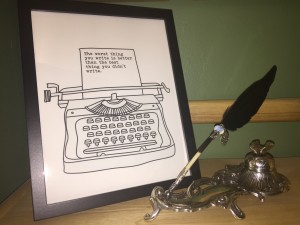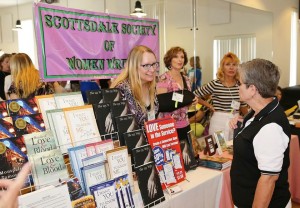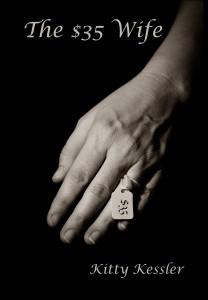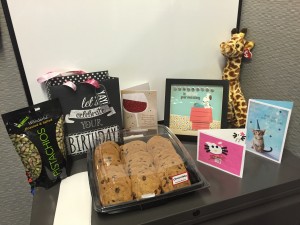When we are born, our parents give us a name. From that moment on, that name is who we are.
As we grow, adults we encounter ask us three questions. What is your name? How old are you? What do you want to be when you grow up?
Most of us pick a goal. I want to be a firefighter. I want to be a nurse. I want to be a dinosaur. Don’t judge.
We dutifully repeat our career goal to inquiring grownups.
All through grade school, we are proud of our choice. We pretend that we are living our dream. Doctoring sick dolls. Circling the moon in cardboard rocket ships. Teaching rows of stuffed animals their ABCs.
Until we stop. When did those dreams disappear? When did the adults stop asking us what we wanted to be when we grew up?
In high school, a few of us still clung to our dreams and fewer still carried them into college. Or beyond.
Ask any astronaut how he realized his dream and he will tell you that he worked. Hard. He never gave up that dream even when there wasn’t enough coffee to get him through half the hours of studying he needed. Every step, no matter how small, got him closer to his goal.
When did the rest of us stop wanting to be a ballerina, a chef, an astronaut, a teacher?
I remember wondering why there were no teachers speaking at my middle school career day. It kind of made sense; the teachers were with us every day. But I hadn’t thought to ask any of them what I needed to do or where I needed to start to achieve what I always knew I was meant to do.
That night at dinner, I announced my intentions to my family. “When I grow up, I’m going to be a teacher.”
My mother was quick to respond, “You can’t be a teacher. You’ll never make enough money to survive. Anyway, the kids will laugh at you.”
I was crushed. I loved working with children and was often called upon to babysit for various families in the neighborhood.
My mother was right about most things; she was the smartest person I knew. So I set that goal aside and later took my first real job at a day care center. It was a joy to read to the kids and help them write their letters and numbers. While I wasn’t the teacher I dreamed of becoming, that job mostly satisfied my desire.
Time passed and I became a mother. My daughter was eager to learn and soaked up everything I taught her. We started with the ABCs and by the time she was five, she was reading chapter books. I was proud of her, and proud of myself for teaching her.
I once again wanted to be a teacher. Now a single mother, I did not have the resources to go to college. I didn’t even have a high school diploma, having dropped out when I got pregnant. I embraced my grown-up responsibilities and took whatever employment I could find.
Like so many, I gave up on my dream. Our reasons vary, but the majority of us never grow up to be what we said we wanted to be.
We take jobs, start careers, become other things. No less important, but not what we told all those countless adults years ago. We become electricians, analysts. We drive recycling trucks and pour coffee. We work retail and answer phones, teach yoga and wash windows.
When someone asks me who I am, I answer, “My name is Kitty and I fix addresses for the local electric company. I’m also a writer and an editor.”
A while back, someone asked me what I would attempt if I knew I could not fail. Today, I ask you. Who would you be if you had not quit?
John Assaraf said, “If you’re interested, you do what’s convenient. If’ you’re committed, you do what it takes.”
Have your passions changed since you were a child? That’s okay. In fact, I would hope that they did change. Change, not disappear. As long as you are willing to work, it’s never too late to set a new goal, dream a new dream.
Perhaps you no longer know or cannot put into words what you want to be.
Ask yourself some questions to once again discover your passion.
- When I was young, I wanted to be a(n) __________ when I grew up.
- In my free time, I enjoy _______.
- If I won the lottery, the first thing I would do after paying off all my debts is __________.
Once you set your goal, I encourage you to work toward it. Make a list of what you need to accomplish that dream. If a certificate or degree is required, start looking at schools and applying for grants and scholarships if you need them.
I’m not only talking about your career. If you’re happy in your job, be thankful. But what about your hobbies?
Perhaps you want to be an artist. Go paint a picture, or mold a lump of clay into a work of beauty. Dreaming of owning a horse? Go to a stable and take a ride. Have a message to share? Find a Toastmasters club and sign up to give a speech.
Don’t let the standards of our society define you. You are more than just what you do. If you want to be something different than you are now, work toward it. If you want it bad enough, you will find a way. Then you will have a more satisfactory answer when someone asks you who you are.
Who am I?
My name is Kitty Kessler and I’m 44 years old. I’m a wife, a mother, an addressing guru, an advocate against domestic violence, a writer, an editor, a small business owner, a toastmaster, and most recently, a student working toward her Masters Degree and teaching certificate.
 If you’ve been dedicated and written on a regular basis, you now have a bunch of scenes or chapters in your story. However, any progress is better than none, so keep at it until you have created a habit that works for you. Don’t be discouraged if your computer sat untouched for days. As I am fond of saying,It is okay to make today the next first day of the rest of your life. Write down your dream and stick it where you can see it. “I am a writer.” Write it in lipstick on the bathroom mirror, or with colorful markers on the white board at work; post it wherever you will see it multiple times each day. Find a local writers group and make some writing friends. Join a critique group where you are required to submit a set number of pages every month. Do whatever it takes to step out of your old habits and into the life you have dreamed of.
If you’ve been dedicated and written on a regular basis, you now have a bunch of scenes or chapters in your story. However, any progress is better than none, so keep at it until you have created a habit that works for you. Don’t be discouraged if your computer sat untouched for days. As I am fond of saying,It is okay to make today the next first day of the rest of your life. Write down your dream and stick it where you can see it. “I am a writer.” Write it in lipstick on the bathroom mirror, or with colorful markers on the white board at work; post it wherever you will see it multiple times each day. Find a local writers group and make some writing friends. Join a critique group where you are required to submit a set number of pages every month. Do whatever it takes to step out of your old habits and into the life you have dreamed of.




